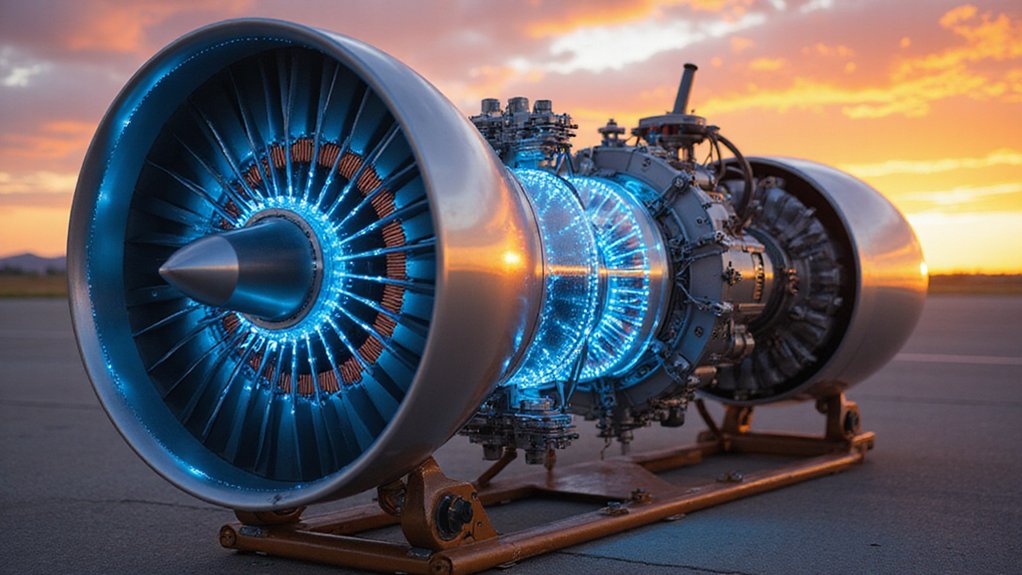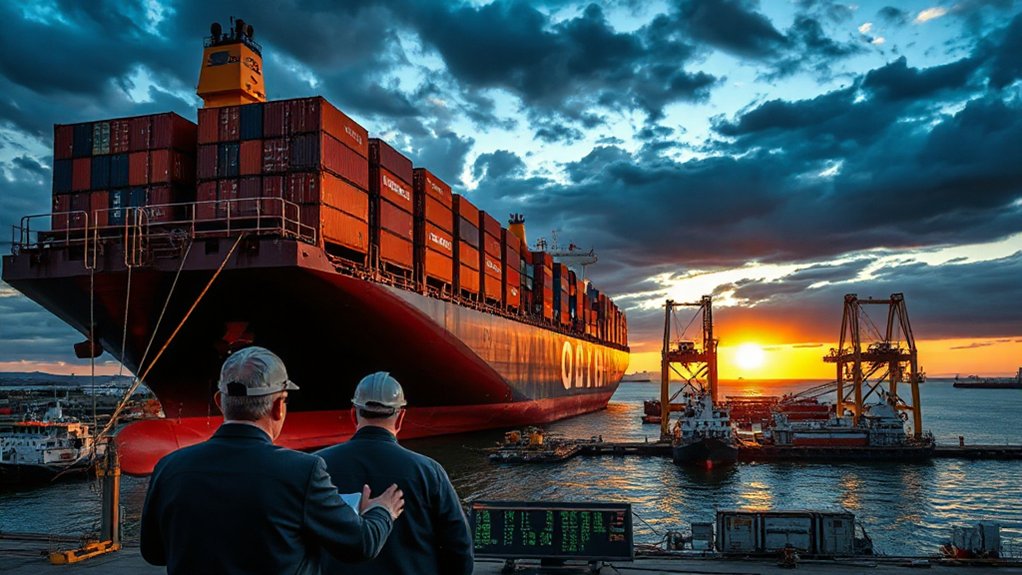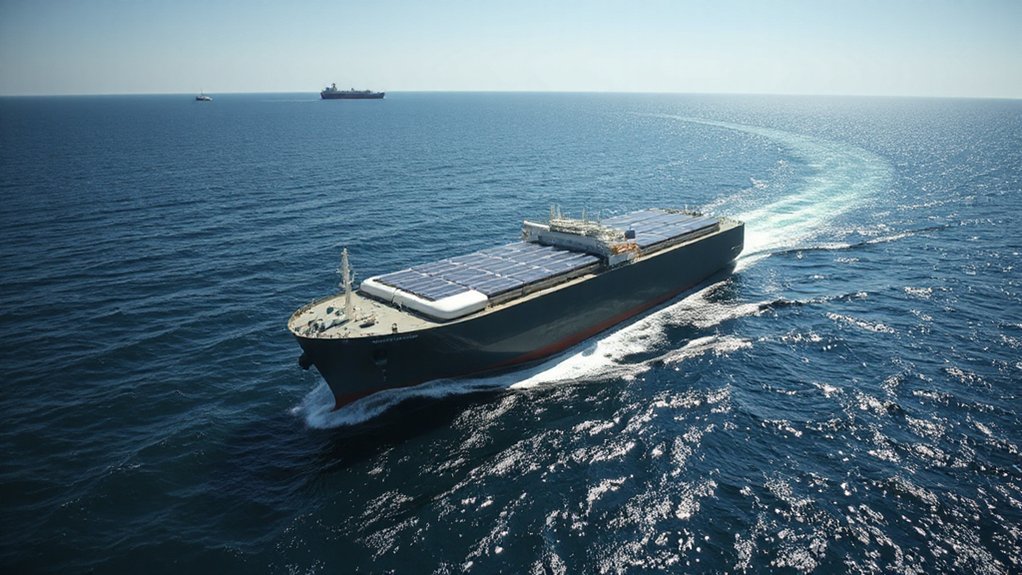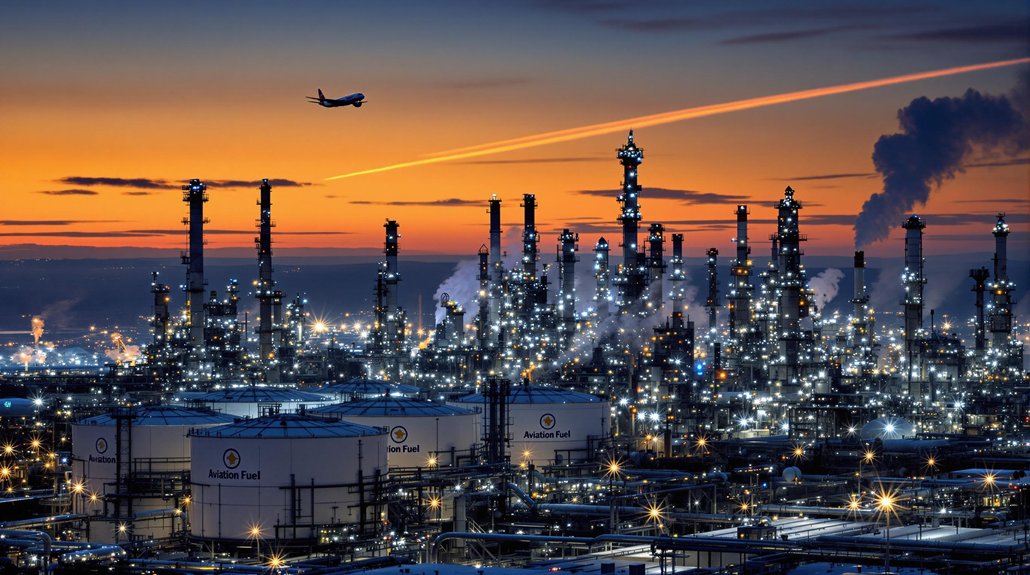The aviation industry is witnessing a remarkable shift. All-electric engines are challenging jet fuel’s decades-long dominance. These new propulsion systems produce zero emissions during flight and operate with considerably less noise. Companies like Airbus and Heart Aerospace aren’t just developing prototypes—they’re building commercial aircraft ready for deployment within years, not decades. The technology combines permanent magnet motors with advanced battery systems. What does this mean for the future of air travel and our environment?
The future of flight is getting quieter and cleaner as all-electric engines make their way into aviation. These new propulsion systems use electric motors powered by batteries or hydrogen fuel cells instead of traditional jet fuel. Engineers are focusing on permanent magnet synchronous motors (PMSM) because they’re more efficient, lighter, and create less noise than older engine designs.
Hydrogen fuel cells are getting special attention from aircraft makers. They work by combining hydrogen and oxygen to produce electricity during flight. This technology offers an alternative to battery-only systems, which can be heavy for longer flights. Airbus’s ZEROe concept uses several megawatt-class electric engines, each with its own fuel cell system and liquid hydrogen tanks.
Real progress is happening now. Heart Aerospace’s X1 will likely be the largest fully electric aircraft to fly when it debuts in 2025. This test aircraft will pave the way for the ES-30, a 30-seat regional airliner that can fly 124 miles on electricity alone or up to 249 miles in hybrid mode. The electric regional aircraft has already secured 250 firm orders from major airlines including United Airlines, Mesa Airlines, and Air Canada.
Meanwhile, Airbus plans to launch hydrogen-powered commercial aircraft in the late 2030s. The environmental benefits are significant. All-electric propulsion eliminates direct greenhouse gas emissions and doesn’t rely on jet fuel. These systems also convert energy more efficiently than conventional engines, wasting less power. Electric aircraft are quieter too, which is good news for communities near airports. Unlike fossil fuel-based aviation, electric propulsion achieves efficiency rates of 300-500%, similar to geothermal heat pumps.
Current challenges include battery limitations for larger aircraft. While lithium-ion batteries work for small planes, they don’t hold enough energy for long flights. Hydrogen fuel cells offer 100 times more energy by weight, making them promising for longer routes once storage issues are solved. The high gravimetric energy density of hydrogen makes it particularly attractive for future commercial aircraft applications that need to travel longer distances.
Many companies are developing hybrid systems that use both batteries and fuel cells to extend range. As these technologies improve, electric aviation isn’t just becoming possible—it’s becoming practical. The age of jet fuel may be ending as electric engines take flight.
References
- https://zeroavia.com/blogs/together-in-electric-dreams-advancements-in-electric-aircraft-propulsion-technology/
- https://www.flyingmag.com/historys-largest-electric-aircraft-set-to-fly-next-year/
- https://www.airbus.com/en/newsroom/press-releases/2025-03-airbus-showcases-hydrogen-aircraft-technologies-during-its-2025
- https://www.ainonline.com/aviation-news/futureflight/2025-04-09/magnix-electric-aero-engine-reaches-key-milestones
- https://www.techeblog.com/electric-heart-x1-plane-first-flight-inside-look/









